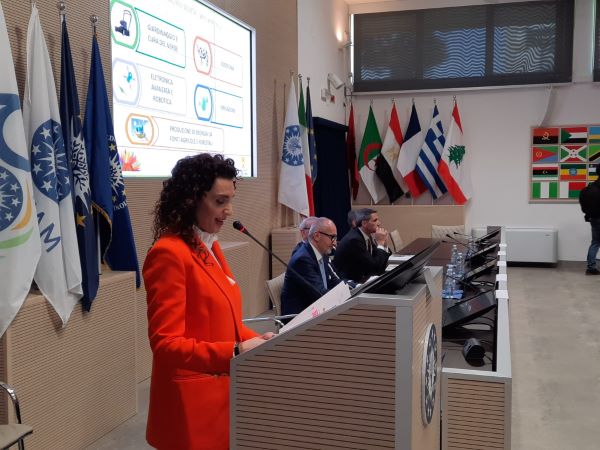The agricultural economies of the region have extraordinary potential, particularly related to high value-added crops. However, demographic imbalances, anthropisation, land consumption and climate change may hold back development, especially in the countries of the ‘southern shore’. FederUnacoma: agriculture and mechanisation essential for stabilising the area. The leadership of Italian manufacturers.
Agrilevante, scheduled to take place in Bari from 5 to 8 October, is not just a promotional and commercial event, it is also a focus on the Mediterranean agricultural economy, its development potential and its complexities. This was stated by FederUnacoma President Alessandro Malavolti during the press conference held this morning at the Ciheam of Bari.
Mediterranean countries – Malavolti stressed – share a common heritage in terms of resources and cultural history, and are characterised by an essentially uniform climate and a vocation for quality agricultural production, especially in the fruit and vegetable sector. However, there are several critical issues in the area that require specific intervention policies, starting with demographic imbalances.
Over the last fifty years, it has been observed, the region’s overall population has almost doubled, and will well exceed 500 million in 2020. The incremental trend has not been evenly distributed, but has mainly been concentrated on the southern shore, where it has caused strong economic, social and political tensions.
“The disharmonious development between urban centres and rural areas,” explained Malavolti, “has led to a marginalisation of agricultural economies, which are fundamental for the life of local communities, and has accentuated the phenomena of anthropisation, which have caused loss of agricultural land”.
These problems, particularly present in North Africa and the Middle East, where the rural population is larger, have combined with those produced by climate change, with a reduction in rainfall and a crisis in water resources.
“Agricultural mechanisation is therefore of strategic importance, and statistics on the agricultural machinery market,” added the president of FederUnacoma, “show how countries in the area are expressing a growing demand for specific technologies”.
In North Africa, the Balkans and the Middle East, where there is no advanced agro-mechanical industry, the need for agricultural equipment tends to be met through imports from abroad. In trade with Mediterranean countries, despite fierce competition from Indian and Chinese manufacturers, Italian industries are established strategic partners. While Asian companies have mainly exploited the effect of price – concluded the president of FederUnacoma – Italian manufacturers have gained important positions on these markets thanks to their ability to design technologies suited to the specific needs of the Mediterranean, and to share technology dissemination and transfer initiatives.








